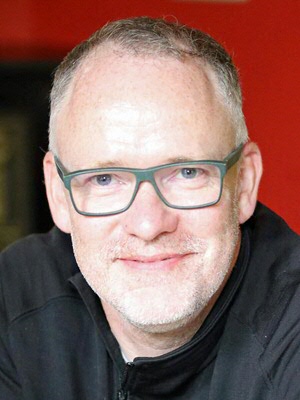Researchers take publishing process into their own hands
Large commercial publishing houses charge high amounts for open access publication of scientific articles. Dissatisfied with this, more and more researchers want to keep control of the publication process themselves. They are opting for community-driven initiatives. At the UG, the University of Groningen Press (UGP) can play an important role in this, as explained by five researchers.
Text: Gert Gritter, Corporate Communication UG
Number one ranking
Publishing via Open Access (OA) increases access to scientific research for readers all over the world. Partly for this reason, this theme is one of the UG’s strategic spearheads. This is bearing fruit. In the period 2018-2022, as much as 95% of Groningen’s scientific publications were accessible via OA. According to the CWTS Leiden Ranking, this puts UG and UMCG in first place worldwide.
Diamond initiatives
Publishing through OA is not the default. It is obviously not free, nor is it always readily available. Commercial publishers charge high fees, which must be paid by the university or the author. In addition to the increasingly high publication fees charged by commercial publishers, new requirements from funders such as NWO or the European Council have been added, for example in the area of direct accessibility of publications. These developments have led the academic community to want to take more control of the publication process itself through so-called Diamond open access initiatives: here, both reading and publishing articles are free. Diamond initiatives are usually non-profit and run by and for academics. In this way, publishing researchers are less tied to commercial publishers and can set up their own community-driven or scholar-led infrastructure. University of Groningen Press fits that bill.
‘Bibliodiversity’
University of Groningen Press was founded in 2017 by the University Library. The publishing house provides an open access platform for the publication of journals, books, open textbooks and inagural lectures of researchers working at or with the RUG, among others. Because of its non-commercial basis, the UGP can also provide new avenues for publication. Publications that would not stand a chance with a commercial publisher, but are important for the field, are now possible. At the UG, these include publications on small language areas, such as Frisian, but also on small subject areas, such as deafblindness, for which UGP publishes the Journal of Deafblind Studies on Communication. UGP thus also provides more ‘bibliodiversity’. There is also room for co-creation, e.g. by involving and guiding students in the publication process.

Pedagogical benefits
Sasha Goldstein-Sabbah, editor of Jewish Life & Legacy. A window into Jewish life across the Islamic World, is also pleased with UGP. ‘I can’t wait for the open access volume I created with my students to come out in the autumn. Research led teaching is so much fun! Students get practical hands-on experience in making a book and they love it. It is a wonderful diversion from the otherwise theoretical program. They see their work and their names in print, which are nice credits on their CV. If it weren’t for UGP, our open access volume would never be published at all, as it is not commercially viable.’

Less complicated
Michael Biehl is the author of The Shallow and the Deep . A biased introduction to neural networks and old school machine learning. ‘UGP as an in house publisher offers a straightforward and non-bureaucratic way of publishing and advertising the lecture notes as open access e-pub or print-on-demand. It appeared to me much less complicated than having it published by a “commercial” company like Springer, World Scientific etc. Publishing with UGP also feels in line with the University of Groningen “corporate identity”.’
Efficiency and speediness
Andrea Sangiacomo published The Tragedy of the Self : Lectures on Global Hermeneutics: ‘Practically speaking, UGP is very efficient, and running still on a relatively small-scale it keeps a nice personal way of communication and discussing practical details that helps significantly with the overall publication process. The benefits are the efficiency and speediness of the whole publication process. A disadvantage, in a sense, may be that UGP is still a relatively minor press, so it might not have yet the aura of recognition that other more established presses have.’

Inclusivity
Andrej Zwitter is one of the editors of Meta-Science. Towards a Science of Meaning and Complex Solution: ‘Open Access is particularly important to me because it aligns with my belief that knowledge should be accessible to all, regardless of economic or social privilege. The fact that the University Board actively supports academic staff to publish with UGP in this endeavour reflects the institution’s commitment to breaking down barriers to knowledge access. It is a powerful step towards inclusivity, enabling researchers, scholars, and individuals from diverse backgrounds to engage with our work without financial constraints.’
‘Flexible and understanding’
Mónica López López: ‘We were considering several publishing houses for the edition of a book on the needs of LGBTQIA+ youth in care (the Audre project), mostly aimed at professionals working in the field of child welfare. This book project presented the added complexity of being co-authored by a big group of LGBTQIA+ youth with care experiences. Therefore, we needed a publisher that could be flexible and understanding of our collective writing process. Since the first contact we felt that our colleagues at UGP were really committed to the project on a professional and personal level. They were very flexible, accessible and generous with their time and offered enthusiastic guidance throughout the collaboration. It really makes a difference to work with a publisher that believes in the impact of your work beyond the commercial aspect.’
International Open Access Week
Open Access will receive extra attention from 23-29 October, during the International Open Access Week. The overarching theme is ‘Community over Commercialization’. The UGP and the University Library are also linking up at Open Access Week.
More information about UGP
More news
-
15 September 2025
Successful visit to the UG by Rector of Institut Teknologi Bandung
